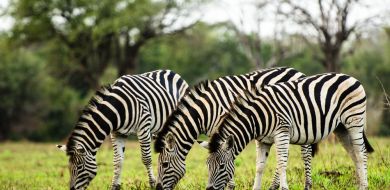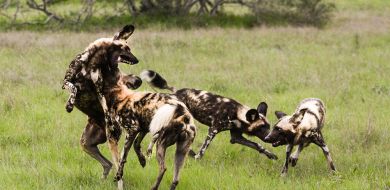Black-Bellied Bustard
on Dec 13, 2014The Black-bellied Bustard (Lissotis melanogaster) is a ground-dwelling bird found in woodland and open grassland areas of sub-Saharan Africa, from KwaZulu Natal in the South right through Central, East and West Africa. This bird, as with many other species which have had their names changed in order to standardise international bird lists, had a previous identification. Until very recently it was known as the Black-bellied Korhaan(Eupodotis melanogaster).
These birds have distinctive long legs and necks which enable them to see over tall grass. In Afrikaans the Black-bellied Bustard is called the "Langbeenkorhaan" which translates as "long-legged" bustard. Females of the species are a lot smaller and lighter than the males. They have an average weight of roughly 1.4 kgs, compared to the 1.8 - 2.7 kgs of the males. Both sexes have spots and barring on their backs, but males can be distinguished by the much darker and more defined markings on their heads, necks, bellies and under their wings.

The breeding season for the Black-bellied Bustard is from October to February. During this time the male will exhibit an interesting, elaborate courtship ritual to attract females. He begins with a slow display flight, taking to the air with slow wing beats to make himself appear larger than life, then glides down to the ground with outstretched wings to expose his black belly. Within his territory, the male will also stand on an elevated spot like a termite mound to make himself more visible, stretching his neck to expose the black line running down to his belly and making a croaking call before suddenly pulling his neck against his breast and lets out a characteristic popping sound.
Bustards don't have nesting sites but will nest in the open on the ground using very little nesting material. One or two eggs are generally laid between tufts of grass. The eggs are well camouflaged with light olive green blotches streaked with brown, olive and grey. The female will incubate the eggs and care for and protect the chicks alone.
The word bustard (from the French word bistard) has its origin in the Latin words avis tarda meaning "slow bird". Driving on the Sabi Sabi reserve, guests often have the opportunity of seeing Black-bellied Bustards doing their utmost to quickly move away from the Land Rovers: their fastest get-away is really slow.






